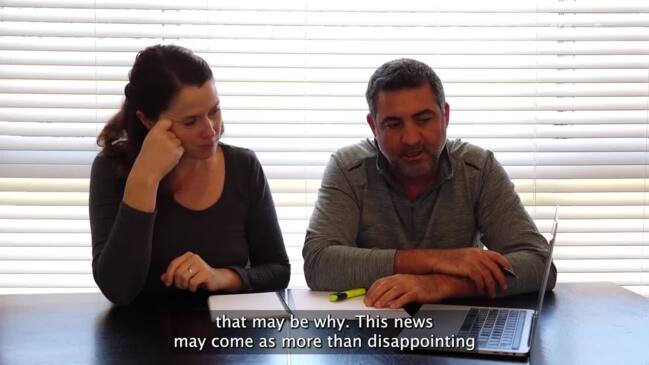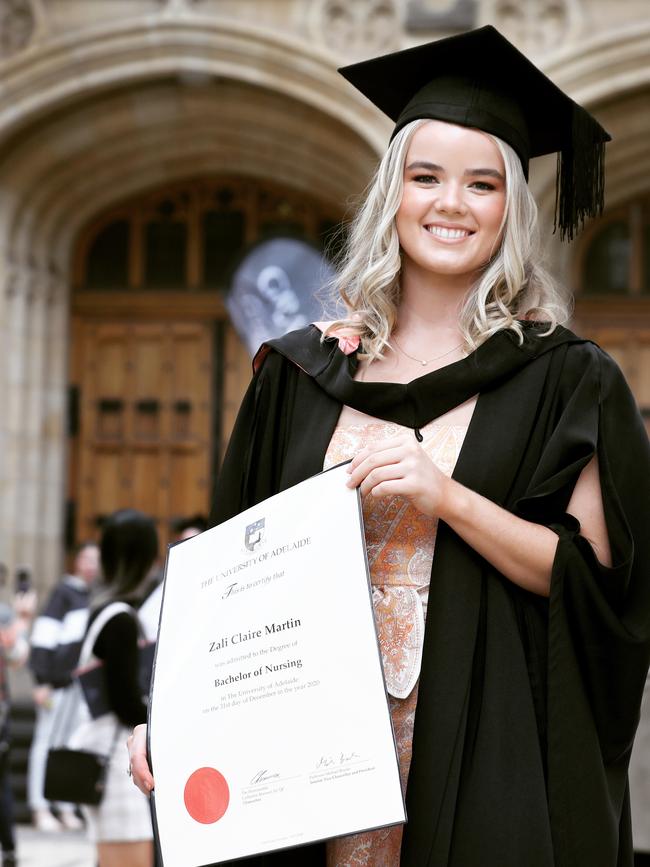South Aussies facing double despair at tax time – low-income offset dumped as HECS debts skyrocket
Under-pressure workers counting on a healthy tax refund to ease the cost of living pain are facing a double blow at tax time, as inflation sends HECS debts skyrocketing.

SA News
Don't miss out on the headlines from SA News. Followed categories will be added to My News.
Once she finished her nursing degree, Zali Martin took it upon herself to pay extra off her HECS debt every fortnight to try and get the figure down as quickly as possible.
For the past two years she has put an extra $3000 into the debt.
But now, she will be forced to pay almost an extra $2000.

“I started paying it off in 2020 and have also been contributing more through salary sacrificing so I can hopefully pay it off quicker,” Ms Martin, 24, said.
“Even though I had been making the mandatory contributions plus extra I am now faced with more to pay off.
“I don’t think it’s fair.”
From June 1, a 7.1 per cent indexation in line with inflation was added to existing HECS debts, which must be paid back when someone earns above the minimum salary threshold of $51,550.
“The 7.1 per cent increase made me feel quite defeated,” Ms Martin said.
“Surely it’s better to have young people going into tertiary education in order to better themselves and contribute to society by providing a highly skilled workforce without penalising them in the process.”
The increase means Ms Martin will pay an extra $1736, an amount she said she would otherwise rely on to pay her rent.
“It will take me an extra year,” she said.
“Currently if I tried to pay off the extra money it would impact my ability to pay rent.”
Ms Martin said she will also feel the pinch when she lodges her tax return this year.
“I would usually get back around $2000 to $3000 but I don’t think I’ll be getting anything back this year,” she said.
“I really can’t see that I’ll ever be able to buy a house if things go on as they are.”
National Tertiary Education Union SA branch secretary Andrew Miller said the indexation of students’ HECS debts was “burdening them with decades of debt”.
“Students are rightly concerned about an indexation and the cost of education and being hampered by future debts,” Dr Miller said.
“The incentive to seek further education is potentially damaged by the cost.
Dr Miller said continued increases to HECS debts would send the message higher education was not as accessible ads it should be.
“Higher education is contradicting itself as being accessible to everybody,” he said.

‘Lamington Tax’ adds to inflation struggles
Teacher Ann Clarke says the government should have waited another 12 months before axing the so-called Lamington Tax, the tax offset that helped many workers.
As she prepares to do her own tax this year, she said the delay would have been a sensible measure in the hope that the cost-of-living crisis could ease in that time.
“I think it is a pretty bad time for this kind of thing to be taken away,’’ said Ms Clarke, 42, from Queenstown.
“Could they have known about the cost-of-living problem when they planned it?
“I don’t know but I think there were people who could see that there were problems ahead that they could have delayed it for 12 months.”
Ms Clarke said she, and others who did their own returns, were already at a disadvantage with the complicated system.
“I budget pretty well because I am paying a mortgage on my own,’’ she said.
“I used to have an accountant help.
“I think the system is already unfair for people who can get experts to find more deductions, but some of us have to work on what we know about.”



